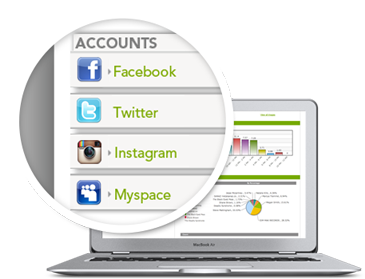

The citizens of the 21st century must boldly address both the benefits and the drawbacks of rampant technology. While a first glance will yield the digital age's many advantageous capabilities for modern life, a deeper examination will uncover some of the more problematic circumstances that the technology likewise creates.
No demographic is more eager to embrace today's remarkable technology than children. They are quick to integrate both the technology and its applications into their lives, but this age group does not always possess the common sense that should accompany such significant usage; as a result, parental monitoring is an essential concern for all parents.
Today's parent recognizes the necessity for such monitoring, but this level of involvement isn't always seamless for either the parent or the child. Parents must balance their responsibility to protect their children from real and virtual threats while the children don't want to feel that their privacy is invaded by the adults in their lives.
According to the New York Times’ article, "Big Brother? No, It's Parents," this dilemma is one that must be met with tenacity and honesty. When Jill Ross' 16-year old daughter received her own laptop, Ms. Ross invested in a software program that would track her daughter's online adventures. When her daughter made harmless teenage videos with her friends and posted them on YouTube, Ms. Ross was immediately aware of what her child was producing to share with the world. In this case, the parent was able to observe her daughter's virtual interactions and guide them should the need arise. On the other hand, since her daughter was aware of her mother's involvement, she did not feel that her privacy was violated. Her mom's online monitoring was just a natural extension of her other parental duties and a condition of her daughter's possession of the laptop.
An entire industry has been born from such parental diligence; in fact, there are countless apps today that help parents monitor their children. Mike Robinson, a father and IT specialist, discovered that his son had inadvertently discovered an adult meeting site that was anything but innocent. Because Robinson was aware of his son's online activity, he was able to have an open discussion with his son about values and relationships. As Robinson reflected on the experience, he concluded that, "I don't think I'd be doing my job unless I was trying to keep track of this type of activity."
Such apps are particularly useful tools today since the digital world has gone so mobile. Parents in the past could observe their children's online experiences by locating the computer in the family's main room and blocking certain sites, but the handheld devices that many children possess do not make that a relevant answer for today. Fortunately, there are any number of apps that will support a parent's desire and duty to protect their children from any online threats just as they protect them from running into traffic, eating too much junk food, or fighting with their siblings.
Parents know their children more intimately than anyone else. When parents couple that understanding with a comprehension of technology, they will be best able to shape their children’s online world into the safe, positive environment they deserve.



